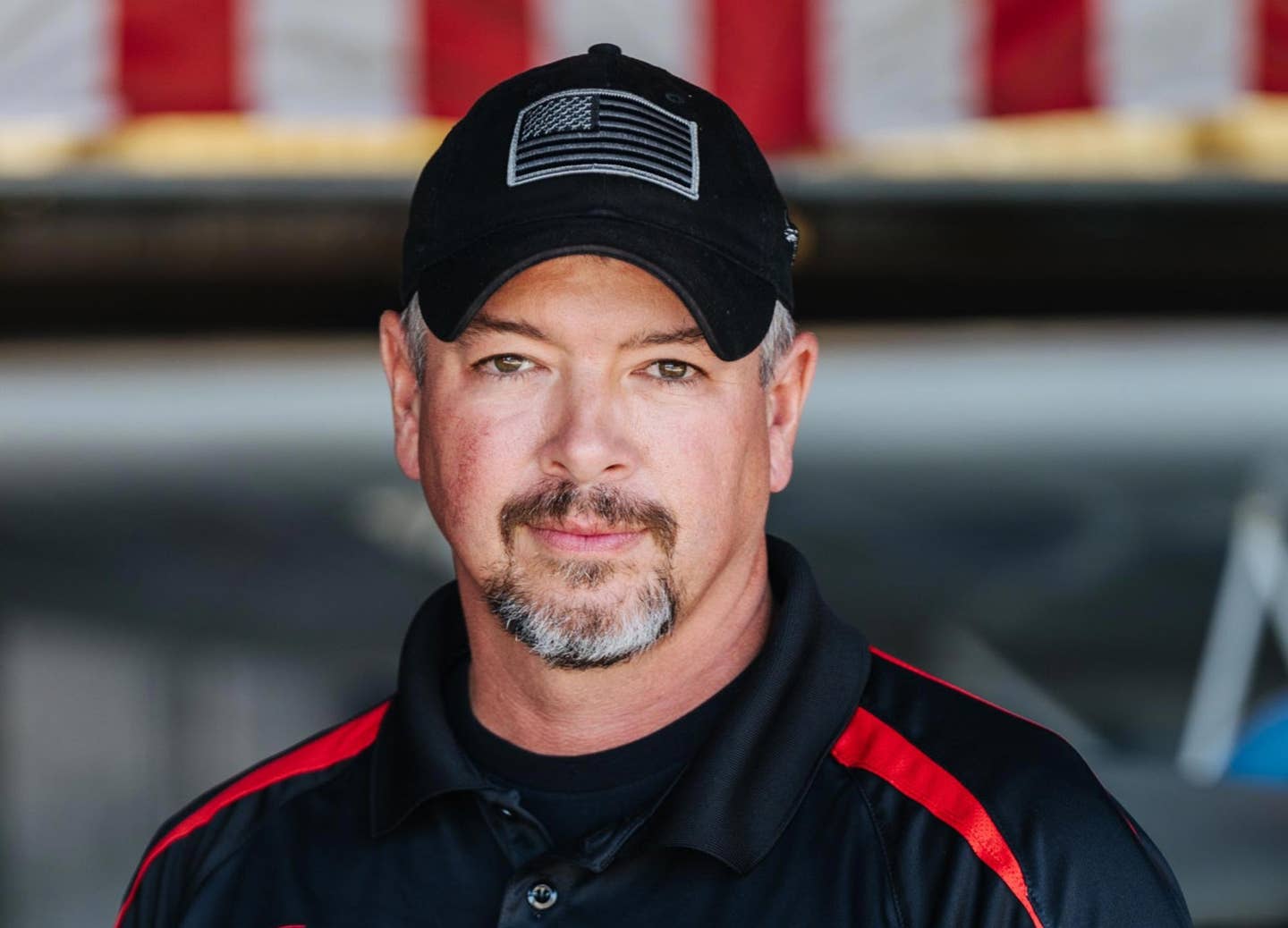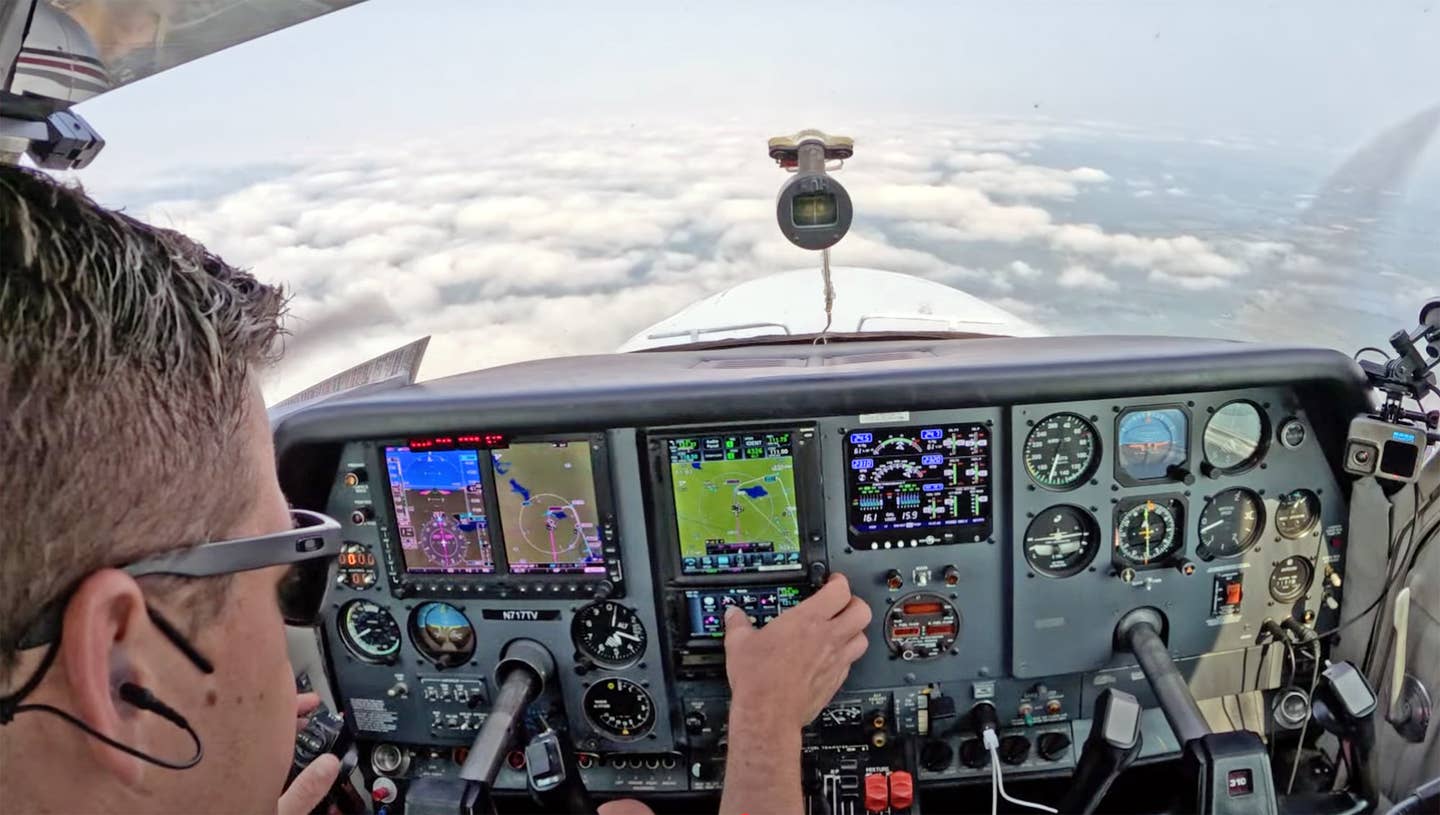Pelican’s Perch #68:The Human Borescope
AVweb’s resident Pelican talks of a different kind of borescope — one that may well save your life.
I just had a colonoscopy, my fourth.Folks, if you have read and enjoyed any of my writings, I would beg you to read this column. Even if you haven't. For some of you, it may the most important column I've ever written, or that you'll ever read.I have a very personal interest in this, for two reasons.First, my father died of colon cancer, so genetic factors greatly increase my own risk, as it seems to "run in the family."Second, I don't have so many readers that I can afford to lose any to this dreadful disease. Over the years I've been talking about this, and occasionally writing about it, I've had about a dozen men come back and tell me that they feel I saved their lives by climbing up on this particular soapbox and ranting a bit. Perhaps one of you readers will read this, take action, and join that small group.I'm not going to bore you with statistics; I hope to frighten you with them. About 150,000 people come down with either colon or rectal cancer every year. It is one of the leading killers of men past 50. This is tragic, because it is an extremely slow-growing cancer, often taking 10 years to go from the first visible signs to a condition like my dad had. It is easily detectible, and easily treated, if caught soon enough. In fact, except for skin cancer, it is the easiest of all cancers to treat, with the highest success rate.
Family History
If not caught and treated, I can tell you from personal experience that it is a miserable way to die. I held my father's hand for the final two weeks of his life, and I was feeling his pulse when his heart finally stopped at age 62, one year younger than I am now.Sadly, the doctors my dad visited during his lifetime played a significant part in his unnecessary death. You see, my dad was what they call "morbidly obese," or more than 100 pounds over his "ideal" weight. This runs on both sides of my family, unfortunately, and I'm no lightweight, myself.The medical profession in those years was unmerciful on overweight people, and only slightly more sensitive to the issue now. Every time he went to a doctor for any reason, they were never able to focus on whatever he went to them for, they constantly harped on his weight, and blathered on about how his weight was going to kill him by age 40, then 45, then 50, and so on. How it was hard on his heart, his lungs, his blood pressure. The idea seemed to be that if he'd only lose weight, his other medical problems would go away by themselves. There is some truth to all that on a broad sampling of the population, but consider that Dad might have been a bit special.
Here's a picture of my dad at age 22, about 6'-4" tall, 220 pounds. My mom was nearly six feet tall. (She would die in 1944 from a congenital heart defect, Mitral Stenosis; a quick, easy fix now, but fatal then.) Yeah, that's me in the middle, the blockhead, at 15 months or so.My mom's folks hired Dad during the Great Depression, solely for his size and strength, for they were traveling glassblowers and needed a "grip" to haul the heavy equipment, set it up, and tear it down. Years of brutal work (and lots of eating) made him into a very large man, built like a sumo wrestler, a truly massive man. Until he was about 45 or so, there was little fat on him. It was all muscle, for he often engaged in heavy construction projects, and lifted more, hammered more (and ate more) than any other three people on the job.When the doctors routinely slapped a blood pressure cuff on his huge upper arm, the numbers would be horribly high. What they seemed unable to understand was that they were trying to compress solid muscle, and that takes more air pressure in the cuff to halt the flow of blood than does a normal arm. The readings had nothing at all to do with the actual pressure in his blood system! At least three times that I know of, they put him on medication to lower his blood pressure, and every time they did, he'd start fainting from low blood pressure! Off the medication, he'd feel fine, work like a slave for 14 hours straight, and felt great.He once took me with him to visit a boyhood friend he'd not seen in many decades. They were obviously fond of each other, but this "friend," now a doctor (the doctor who later would try to resuscitate Bobby Kennedy) spent the whole visit teasing Dad unmercifully about his weight, wanting him to get on a scale, and just going on and on. I wanted to punch him in the nose, and Dad was really "down" the rest of that day. Some "friend."
Too Much Hassle
After years of this, Dad simply didn't go to doctors anymore, no matter what. He felt the hassle just wasn't worth it. When injured, he'd patch himself up, and when I nearly amputated my thumb one time, he patched that up, too. When blood started showing in the bowl, he thought it would pass, and ignored it. Why go to a doctor, they'd just harp on his weight? When the pain in his gut started, he ignored that, too, for several years. He must have had a huge tolerance for pain, because he didn't visit a doctor until he was in agony. By then, of course, it was long too late. They opened him up, looked, zipped him back up, and sent him home with a prescription for painkillers, telling him when those didn't do the job they'd give him better ones. When pills no longer worked, we gave him injections when the pain became unbearable.By the way, on the operating table, they plugged a blood pressure sensor into his arm, and it was utterly normal, even on the low side. There was nothing wrong with his heart, either, it beat strong and clear to the day he died. All those doctors, all those years, yelling at him for his high blood pressure and his weight. So sad.Was Dad blameless? Of course not! He SHOULD have eaten better, he SHOULD have kept his weight down a bit, and above all, he should have told those doctors in no uncertain terms, "Look, you idiot, I don't want to hear about my weight, I want help with my problem!" But Dad was a quiet man, never did raise his voice or take anger with others, he just left quietly, without having been helped. Above all, he should have gone to a doctor when the first symptoms of colon cancer appeared, but even now, I wonder if it would have done any good; they'd have just put him on a scale.Both of Dad's brothers (twins) had colon cancer, but both caught it in time, both had surgery, and both are living today.
Colonoscopy
Doctors have been very slow and reluctant to do colonoscopies unless there are overt symptoms. There is a small risk to the procedure. First, it's possible that a ham-handed doctor might slip and punch through the wall of the bowel, a major complication. That can be mitigated by getting it from a specialist who is well-recognized in the community, one who does a lot of them. The other risk is from the anesthesia: A very few people don't tolerate it very well.In years past, insurance companies wouldn't pay for this "prophylactic colonsoscopy," for they figured that it was cheaper to pay for the occasional cancer patient than to pay for everyone to get the procedure. In years past, I simply paid for the whole thing myself, making it clear up front that I would be paying in cash. My first one cost $500, which I considered money well spent.That may have changed a bit: This latest one will probably be paid by my company insurance, as the doctor was quick to recommend it, based solely on my family history. I understand the cost is up around $1,500, now.Frankly, I think it's so important, that I'd lie to a doctor, and tell him I was passing blood, in order to get this done, with or without insurance.Many get the heebie-jeebies thinking of a tube shoved up their rear, with many men having visions of the old, much hated "finger wave." For some, this is agony, for others, it's nothing. Fortunately, the colonscopy is much easier than the finger wave, as most doctors use at least sedation, and this latest one put me out entirely. I asked if he could do it without sedation, and his answer was, "Yeah, in rare cases where there's a known problem with the anesthetics, I'll do it without, but it takes a lot longer, and I don't enjoy hurting people."Point taken.
Preparation
The worst part of the whole thing is the "clean out." I like my vittles, so 24 hours without food is a real chore for me. My wife thought it was funny, which didn't help my mood. I hate being hungry, but it's required to quit eating 24 hours in advance. Clear liquids, clear soup and bullion are fine, but no solid foods. I find a lot of good, strong tea helps.It's also necessary to clean out all waste, and this means taking a very powerful laxative, starting about 24 hours before the procedure. There are two types you should know about. The first is "colyte," a foul-tasting liquid that is mixed with a gallon of water. That means you're making a gallon of foul-tasting stuff. You then drink that gallon of horrid stuff over about a 12-hour period. Folks, it's hard to drink a gallon of anything in that time! That's a LOT of fluid! Any doctor who suggests this method ought to be shot, in my opinion.The better alternative is "Fleet's Phosphor Soda," which comes in small 1-1/2 ounce bottles. The morning before the procedure, you mix that 1-1/2 ounces with 4 ounces (half a glass) of water. It's a lot easier to choke down that 5 1/2 ounces of foul-tasting stuff, than a gallon! Some say use cold water, but I prefer room-temperature water, it doesn't taste quite as bad that way. You follow up with a full glass of water, then drink lots of water until about 7 p.m., when you repeat the dose of Fleets, and keep on drinking lots of water. At midnight, you stop drinking.Don't plan on running any errands, that day. Believe me, you will want to stay very close to home, and the bathroom!The next morning, you'll be hungry, thirsty, and grumpy; at least I was. You'll also be a little apprehensive at what they might find, and that's normal. They'll make you change into one of those hospital gowns with the opening in back, and the ties where no human can reach. The hospital I used this time has a nice touch: When you come out of the changing room, they give you a lovely warm blanket to wrap around your waist. That really felt good! I sat down, and there was a small sting when the nurse stuck the IV tube in. Her comment was, "That's the worst thing you'll feel, this morning," and she was right. I climbed up on the bed, rolled onto my left side, and the anesthesiologist said, "Ok, I'm going to start the medication now, next thing you know, you'll be all done." I smiled, and joked, "I am not going to sleep!" That's the last thing I remembered, and the next thing I heard was, "All done!"This was my first time in a hospital, except as a visitor, and my first time ever to have anesthesia. I could get to like that stuff!
Borescope
My previous time, the doctor gave me only a light shot, and I was awake the whole time, watching the show on a TV monitor, with a running commentary. I was vaguely aware of some poking and prodding, but at no time was there any discomfort. Absolutely fascinating to watch! The probe has lights, tools, a vacuum, and various other things, so the doctor can snip off polyps as he moves along. He'll pump in a little air to make the local area stretch out, will take a good look around, then pull the air back out, and move on to the next section. I wanted him to videotape it so I could put a copy in the crew room library, but he wouldn't do it.The large bowel is called the colon, and is in three major parts, called the ascending colon, transverse colon, and descending colon. In reality, it's all over the place, up to nine feet long, all wrinkled and kinked, so it's something of a chore to look at all of it. The colonoscope is a very flexible tube, about 3/8 of an inch in diameter, and nine feet long. It gives a superb view, very, very clear, with magnification.There is an alternative procedure called a "Sigmoidoscopy." In my opinion, if you're getting checked for colon cancer, and your doctor wants to do one instead of a colonoscopy, run, don't walk, and find another doctor. This one is more rigid, and inspects only the first couple of feet of the bowel. That is where most cancers occur, but if you're going to all the trouble of the cleanout and the procedure, why not just go first class, and have it all checked? The Sigscope also tends to be larger, and for some reason they don't seem to give much anesthesia, so most reports I've had are that it's a lot more uncomfortable.In my opinion, if you're over about 45, and there is any family history of colon cancer, you need to have this done. As you pass 50 or 55, knock that down to every three years or so, and over 60, every two years. If there is no family history, and the first one is "clean," you might wait a bit, and not have it done quite that often. The idea is that if you get the procedure done today, and the colon starts growing a cancer tomorrow, you want the next colonoscopy in time to catch it before it requires the full-boat surgery. Mercifully, colon cancer usually pops up as small, mushroom-shaped, non-cancerous polyps first, and these are easily snipped off by the colonoscope. But left alone for a period of years, they will turn into cancer, and start spreading into the wall of the bowel, and beyond. Then it's too late for the 'scope, it's time for surgery.Don't let this happen to you, please?Oh, yes, this one was clean, not a single anomaly. The doc said, "Come back in five years." I'll be back in two.Be careful, up there!






